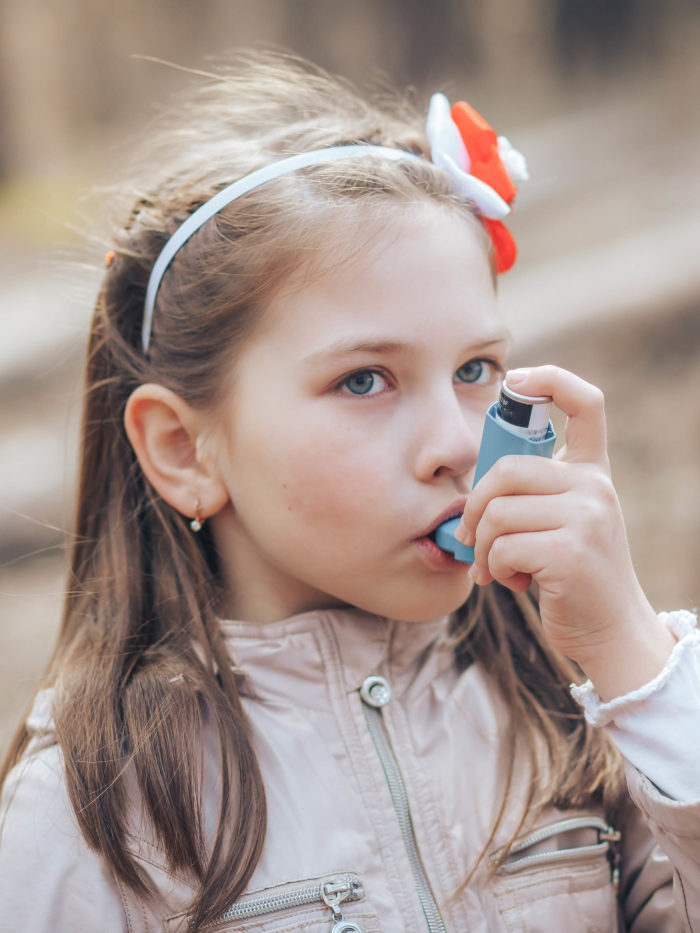The number of children with asthma continues to rise, but the evolution of asthma medication means most attacks can now be prevented before they start.
While rescue medication is still important, the standard practice today is to prescribe inhaled corticosteroids, usually taken once or twice daily. These preventive controller medications reduce the swelling inside the airways, minimizing attacks over time.
When deciding whether to prescribe a corticosteroid, a child’s physician will typically use the rule of two: if a patient uses rescue medication more than twice a week, wakes up at night due to asthma more than twice a month, or refills their rescue inhaler more than twice a year, then controller medication should be used, according to Dr. Mark Ellis, a CHOC asthma specialist. Controller medication can be started in children as young as 12 months of age.
“We start inhaled corticosteroids whenever we think the benefits outweigh the risks,” Dr. Ellis says.
Corticosteroids are not addictive and have very little risk for long-term side effects. Dr. Ellis says children may experience slowed growth by up to a quarter inch the first year and a quarter inch the second year. However after two years, a child’s growth will catch up to normal levels. Your child’s physician will make sure your child is taking the lowest dose possible to minimize any effects.
Corticosteroids are not to be confused with anabolic steroids, which are sometimes used by athletes to increase performance and bulk up muscle.
For hard-to-control asthma, corticosteroids are occasionally combined with another medication – long-acting bronchodilators – in drugs such as Advair and Symbicort. These combination medications are considered safe, Dr. Ellis says, but the Federal Drug Administration has warned that long-acting bronchodilators, such as Serevent and Foradil, should not be used alone.
In addition to corticosteroids, rescue inhalers and nebulizers should still be used when an attack happens. Some children may feel shaky or have an increased heart rate afterward, but the effects are not harmful and should go away quickly.
CHOC is involved in a number of asthma research projects, including one study led by Dr. Ellis on using antibodies to cause an attack on the cells that inflame airways. Several medications are also being tested for safety and effectiveness in children.






